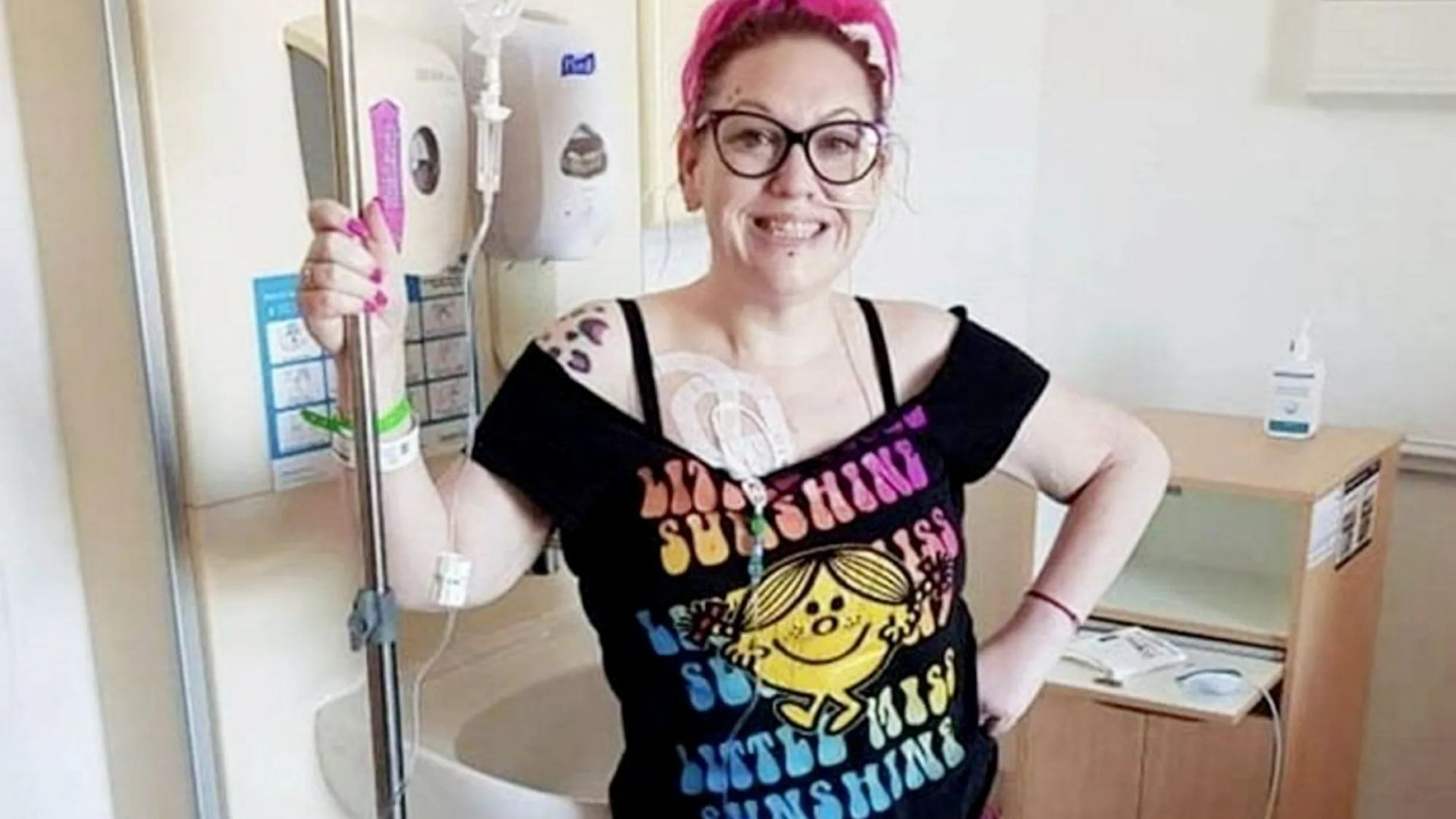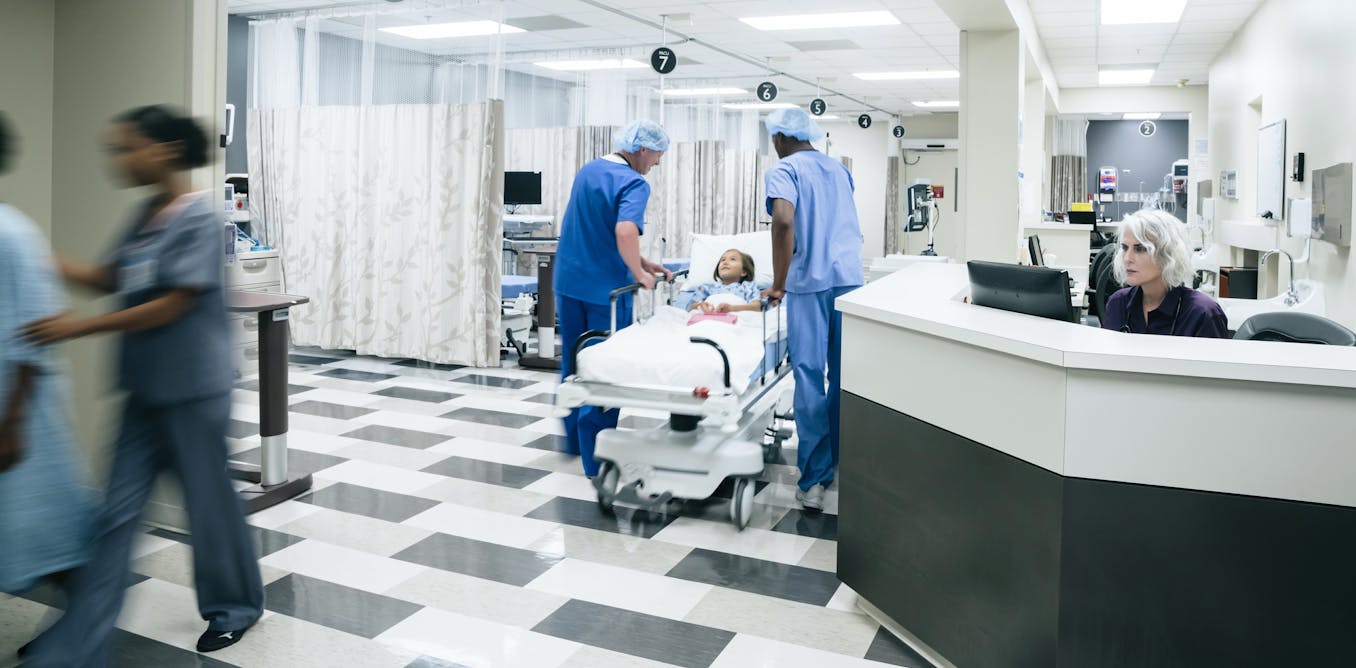A WOMAN whose organs were “turned into concrete” after a botched weight loss operation was left unable to eat for three years.
Pinky Jolley, 46, travelled to Turkey for gastric sleeve surgery in November 2022, after tipping the scales at 17st 11lbs.
8

8

8
A diabetic, Pinky piled on the pounds after medical complications left her in a wheelchair, reaching a dress size 24.
She was advised by UK doctors to slim down after being rushed to hospital in 2018 with pancreatitis and sepsis.
Pancreatitis, inflammation of the small organ located behind the stomach that causes severe pain and vomiting, is more likely to occur in people who are obese, according to the NHS.
Pinky raised £2,100 via GoFundMe for accommodation, flights and surgery in Turkey, saying she felt it was her only option after trying several calorie-controlled diets.
She flew out two months after booking the procedure.
Arriving at the clinic in Istanbul, Pinky became concerned medics “could barely speak English” – but went ahead with the surgery to have 85 per cent of her stomach removed.
When she came round from the two-hour operation, she felt very poorly and suffered intense stomach pain, vomiting and dehydration.
Four days after the procedure, Pinky returned to her home in the Wirral, Merseyside, where her GP recommended an immediate visit to the hospital.
Doctors carried out a CT scan which revealed a serious leak had led to an infection which left a ball of “concretised pus” inside her.
Pinky was forced to undergo emergency life-saving surgery last January, which involved three medics “jet-washing” the inside of her stomach.
She recovered but was only able to be fed via a tube down her nose and throat and was told by doctors she would almost certainly never eat solid food again.
Despite the set back, surgeons at Solihull Hospital this week performed a pioneering operation to effectively build her a new stomach.
Pinky is now planning to celebrate her new lease of life by tucking into her favourite dish of garlic mushrooms and cheese.
Pinky, who runs an online dog adoption service and is married to Paul, 44, said: “I know that it won’t correct everything and it won’t be a cure, but I will be able to eat again.
Looking back it was so cheap that I really should have thought twice but I just got so swept up
Pinky Jolley
“I will be able to go out with friends, to have a life.
“I feel misled and upset that something that was meant to help has caused me so much suffering.
“I lost four stone in four weeks because my stomach was so tiny.
“I wanted to lose eight stone within two years.
A surgeon’s warning
Bariatric surgery is offered in a number of European countries at a fraction of the cost of going private in the UK.
Procedures often include gastric bands, sleeves or bypasses – for which there are long waiting lists in Britain.
But when aftercare goes horribly wrong, the NHS is often forced to take over.
Professor Omar Khan, consultant bariatric surgeon at Ashtead Hospital in Surrey, fears people are risking their lives just to shed some pounds.
He told WalesOnline: “The key issue with any form of surgery is safety.
“For patients travelling abroad for weight loss surgery, there may be real question marks over the quality of pre-operative assessment and the lack of follow-up care offered to these patients.
“Rare, but serious complications can occur and tend to make themselves known one to two weeks after surgery.”
Risks include blood clots and the gut becoming blocked or narrowed.
“Anyone post-surgery must be able to be reviewed and treated by their surgeon, especially in the event of complications,” Prof Khan added.
“Not only this, but these patients do require long-term follow-up, and someone to coordinate their care in the longer term – all things that are absent in patients undergoing surgery abroad.
“When asked about the risks posed with cutting costs and having weight loss surgery abroad, I like to use the analogy about car insurance: buying a car without insurance might be cheaper, but it’s not safe.”
“I’ve had to have a feeding tube to help but everything is so painful.
“They totally botched the operation and left my insides so infected they were all hard and like concrete the doctors said.
“It’s been a horrible ordeal I just want to be well again.
“Looking back it was so cheap that I really should have thought twice but I just got so swept up.”
Pinky, who now weighs 11.5st and is a dress size 18, hopes to return home from hospital in the next few weeks.
‘Like cutting through concrete’
In the most recent operation, lead surgeon Professor Rishi Singhal helped fix the internal arrangement of her colon, liver and spleen which had become stuck and out of their normal position after the botched Turkish op.
He and his team performed a by-pass operation by creating a small pouch from the top end of her stomach and attaching it to her small bowel.
Prof Singhal said dissecting her stomach was “like cutting through concrete”.
What are the risks of getting surgery abroad?
IT’S important to do your research if you’re thinking about having cosmetic surgery abroad.
It can cost less than in the UK, but you need to weigh up potential savings against the potential risks.
Safety standards in different countries may not be as high.
No surgery is risk-free. Complications can happen after surgery in the UK or abroad.
If you have complications after an operation in the UK, the surgeon is responsible for providing follow-up treatment.
Overseas clinics may not provide follow-up treatment, or they may not provide it to the same standard as in the UK.
Also, they may not have a healthcare professional in the UK you can visit if you have any problems.
Source: NHS
He added: “This is normally routine surgery but because of the state of her insides, on a scale of one to 10, this is an 11.
“Surgeons elsewhere in the NHS have declined to do it.
“We have to try to avoid the septic mass – if we cut into it, then she could become septic very quickly and die.”

8

8

8

8

8




